Molar tooth implants are transforming the way dental professionals approach tooth replacement, particularly for those who have lost their molars. Given that molar teeth are essential for chewing and maintaining the overall structure of the jaw, understanding the significance of this advanced solution is crucial for anyone considering dental implants.
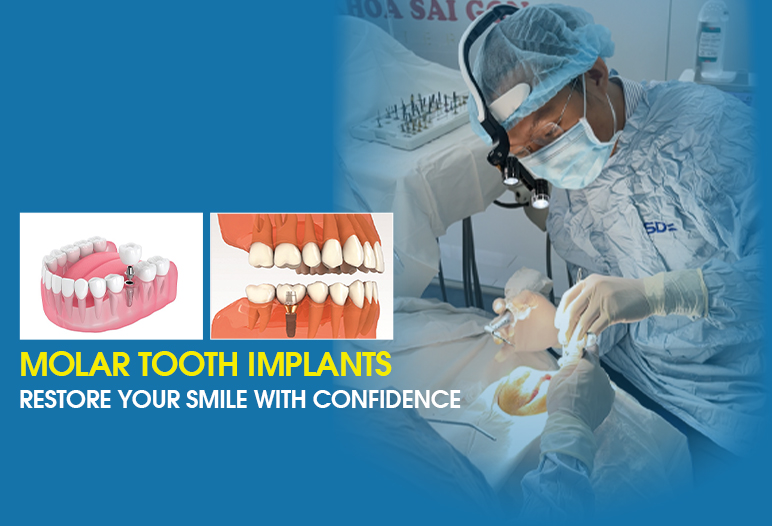
The importance of molar teeth
Molar teeth can often be taken for granted, yet they play a pivotal role in our oral health and wellness. Unlike the more aesthetically focused front teeth, molars are designed for function, grinding down food to aid digestion and ensuring that other aspects of oral health remain intact.
When we lose molar teeth, the impact can extend beyond just difficulty eating; it affects bone density, alignment, and even speech. Understanding the importance of these teeth gives us clarity on why molar tooth implants are such a vital option for restoration.
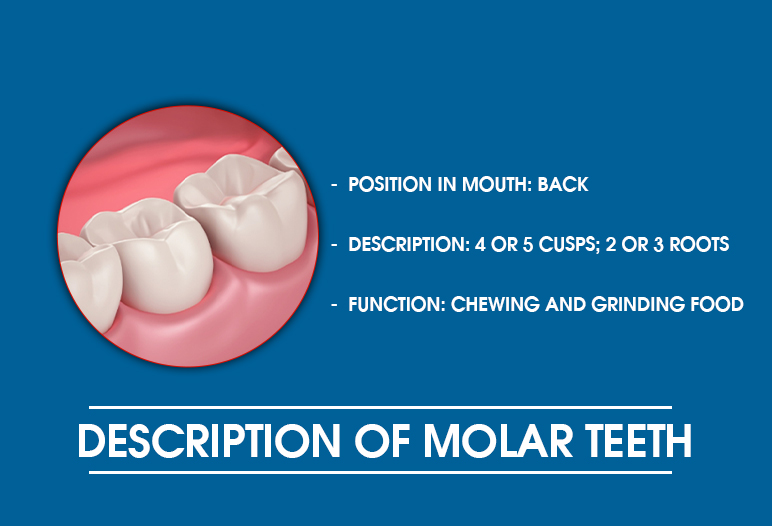
Role in chewing and digestion
Molar teeth are designed with large, flat surfaces equipped with multiple cusps. This unique anatomy allows them to effectively grind and crush food, enabling the breakdown of complex carbohydrates and proteins. Chewing initiates the digestive process by increasing surface area, which helps enzymes in the stomach and intestines perform their job more efficiently.
Without healthy molars, individuals might struggle with various foods, leading to dietary restrictions. Foods that require heavy chewing, such as raw vegetables, nuts, and certain meats, may become difficult to consume, resulting in nutritional deficiencies if not carefully managed. Additionally, inefficient chewing creates larger pieces of food entering the digestive system, potentially causing problems such as bloating, gas, and discomfort after meals.
Impact on oral health
The presence of molar teeth is vital for maintaining a healthy mouth. Their robust chewing activity naturally cleans adjacent teeth, limiting plaque and tartar buildup. Moreover, molars contribute to the proper positioning of surrounding teeth and maintain alignment, reducing the chances of crowding or misalignment. They also serve as critical anchors for the gums and surrounding tissues, fostering a stable oral environment.
Losing molars can destabilize this delicate balance. With missing molars, adjacent teeth may shift into the empty space, leading to further complications down the line, such as increased risk for cavities and gum disease.
Consequences of missing molars
The loss of one or more molar teeth can trigger a cascade of oral health issues. Whether due to decay, injury, or genetic factors, missing molars can significantly impact daily life, from chewing ability to overall quality of life.
Missing molars can lead to issues such as bone loss and misalignment of remaining teeth, all of which underscore the need for prompt restorative measures like molar tooth implants. Neglecting to address missing molars can complicate future dental treatments and compromise long-term oral health.
Common problems associated with missing molars tooth
Many common issues arise when molar teeth are missing. These complications can affect both oral health and general well-being, emphasizing the need for timely examination and intervention through solutions like molar tooth implants.
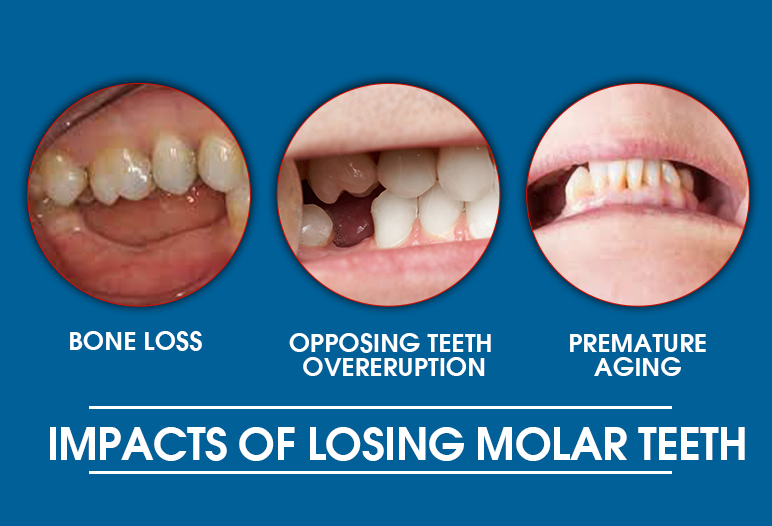
Difficulty in eating
One cannot underestimate the functional implications of losing molar teeth. As these teeth are primarily responsible for grinding food, their absence often leads to significant difficulties in chewing. This limitation can force individuals to change their diets, resulting in a preference for softer foods while avoiding crunchy fruits and vegetables or fibrous meats.
Not only does this create a less satisfying dining experience, but it can also result in nutritional deficiencies. A lack of variety in one’s diet could lead to imbalances over time, impacting overall health. This scenario reinforces the need for effective tooth replacement options such as molar tooth implants, allowing individuals to return to a balanced and nutritious diet.
Bone loss over time
Another severe consequence of missing molars is bone loss in the jaw. Healthy teeth stimulate the bone underneath them, promoting its strength and density. When a molar is extracted or lost, the stimulation ceases, leading to a process called resorption, where the bone deteriorates and shrinks.
Over time, this bone loss can alter facial aesthetics, resulting in a sunken appearance in the cheeks and affecting the structural integrity of the mouth. Delayed treatment for missing molars can make future restoration efforts more complicated and costly, particularly when it comes to placing dental implants, which rely on adequate bone density.
Misalignment of remaining teeth
Teeth don’t exist in isolation; they form a connected network designed to work harmoniously. When a molar is lost, remaining teeth can gradually shift into the vacant space, creating misalignment issues. This shifting may lead to bite problems, increased wear on teeth, and even temporomandibular joint (TMJ) disorders.
Maintaining proper alignment is crucial for oral health, as misaligned teeth are more prone to decay and gum disease. Therefore, addressing missing molars promptly with restorative therapies like molar tooth implants can prevent these complications and maintain a healthy smile.
What is a molar tooth implant?
A molar tooth implant serves as an effective and sophisticated solution for replacing lost molars. It aligns closely with natural tooth structures and addresses the multifaceted impacts of tooth loss.
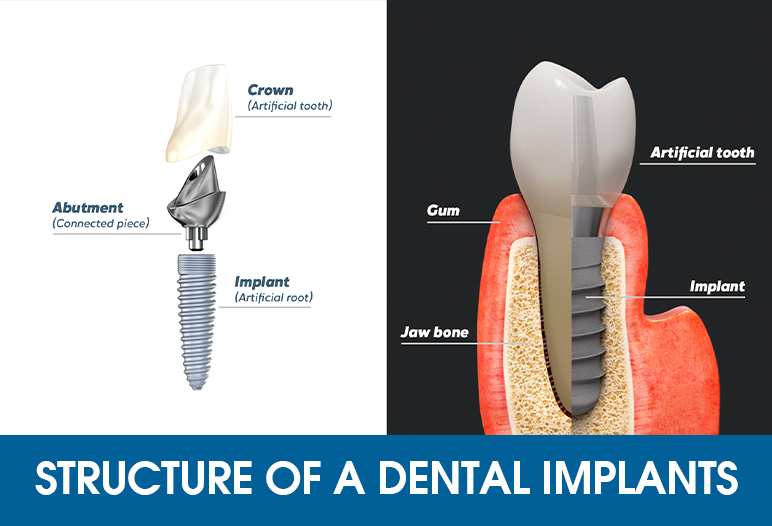
Definition and purpose
A molar tooth implant consists of a biocompatible titanium post surgically implanted into the jawbone to simulate the root of a natural tooth. This post provides stability and supports a custom-made crown, resembling the missing molar. The primary purpose of a molar implant is to restore both the functionality and aesthetics of the lost tooth, thus improving an individual’s quality of life.
Moreover, molar implants integrate with the jawbone over time—a process known as osseointegration. This integration not only enhances the strength of the implant but also preserves the jawbone, preventing the detrimental effects associated with tooth loss.
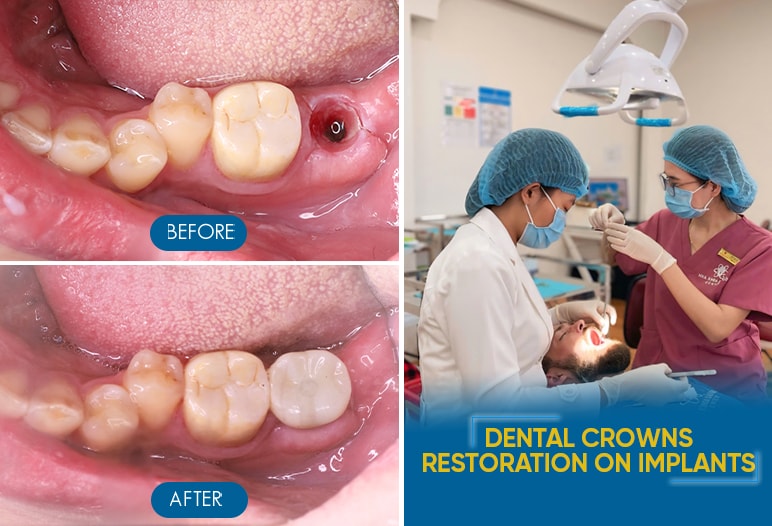
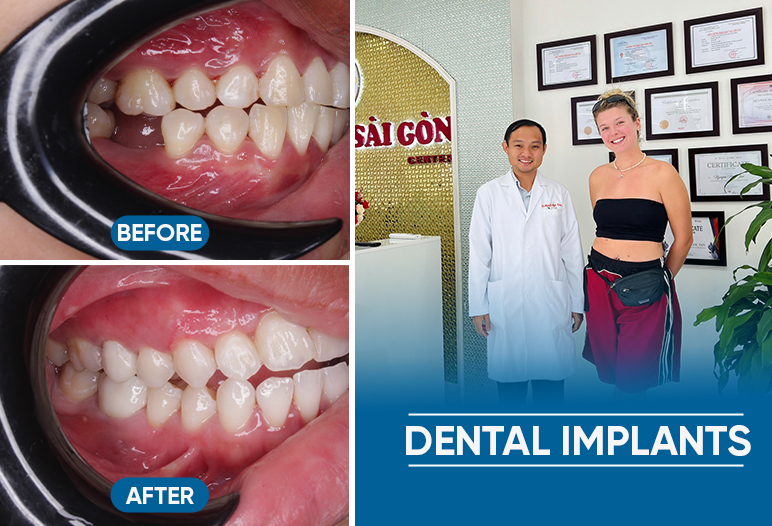
Types of molar implants
Different types of molar implants cater to specific patient needs.
Endosteal implants are the most commonly used type, featuring a small screw-shaped post placed directly into the jawbone. This type typically suits patients with sufficient bone density.
Subperiosteal implants provide another option for individuals with limited bone density. Instead of being inserted into the bone, these implants rest beneath the gum tissue and atop the jawbone, making them suitable for patients unable to undergo bone grafting procedures.
Zygomatic implants, another type, are utilized for patients experiencing severe bone loss in the upper jaw. These longer implants anchor to the cheekbone (zygoma), providing a secure foundation for a dental prosthesis.
Comparison to other dental solutions
When comparing molar tooth implants to other traditional dental solutions like bridges and dentures, the advantages of implants become evident. Bridges rely on adjacent teeth for support, often requiring alteration of healthy teeth, which increases the risk of damage. In contrast, molar implants preserve the integrity of neighboring teeth.
Dentures offer a removable option but can cause discomfort and instability. While they may initially be more affordable, they rarely match the function and aesthetic appeal of dental implants. Ultimately, molar implants provide a long-lasting, stable solution, enabling individuals to enjoy a full range of foods once again.
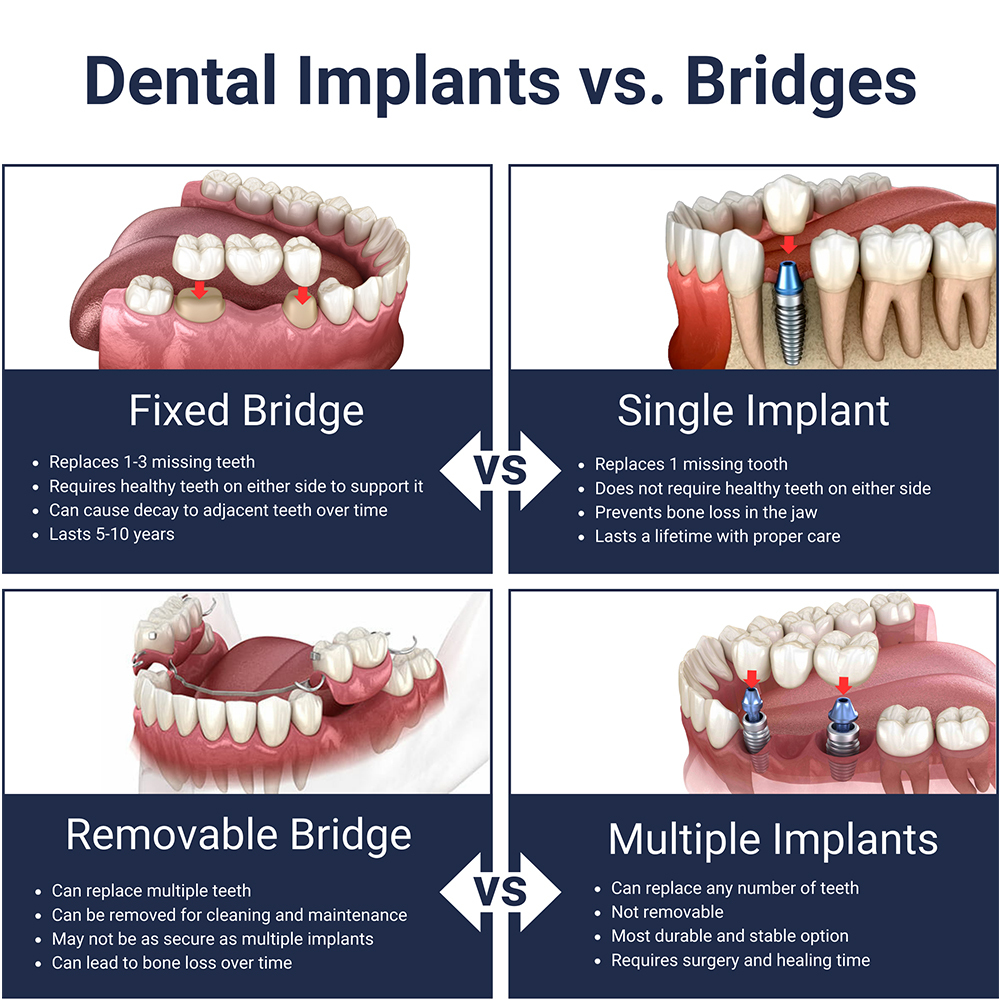
The molar implant procedure
The molar implant procedure is a structured process involving multiple stages. Proper planning and execution are crucial for achieving desirable outcomes.
Pre-Implant consultation and planning
Before the molar implant process, a comprehensive consultation is essential. During this initial visit, the dentist will assess the patient’s oral health and review their dental history. Imaging techniques like x-rays and 3D scans are employed to evaluate the condition of the jawbone and plan the procedure meticulously.

This planning phase is critical for anticipating any challenges that may arise during the surgery and determining the best approach tailored to the individual’s anatomy. By establishing a detailed treatment plan, the chances of a successful outcome are significantly enhanced.
Surgical process explained
The surgical placement of a molar implant is generally performed under local anesthesia, although sedation options are available for anxious patients. Here’s a brief overview of what occurs during the surgical process:
A small incision is made in the gum tissue to expose the underlying jawbone.
If necessary, bone grafting may be conducted to ensure enough bone density exists for implant placement.
The titanium post is carefully implanted into the prepared site within the jawbone.
Finally, the gum tissue is sutured closed around the implant site.
After the surgical installation, the implant requires several months to integrate with the surrounding bone, marking the beginning of the osseointegration process.
Post-Operative care and recovery
Post-operative care is vital in ensuring a smooth healing process. Patients are provided with guidelines for managing pain and minimizing the risk of infection. Common recommendations include:
- Taking prescribed medications, including antibiotics and pain relievers, to manage discomfort.
- Practicing gentle oral hygiene to facilitate healing without disturbing the implant site.
- Diet modifications—such as avoiding hard, spicy, or overly hot foods—that could disrupt healing.
- Regular follow-up visits with the dentist are necessary to monitor the healing process and ensure that the implant remains stable.
While some swelling and discomfort are expected during recovery, these symptoms usually subside with proper care.
Cost of Tooth Implant Molar: Comprehensive Guide to Pricing and Factors
Cost of Tooth Implant Molar: Overview
The cost of dental implant for back molar can vary depending on several factors. On average, you can expect prices to range between $3,000 and $6,000 per implant, including the implant post, abutment, and crown.
Here’s a breakdown:
- Second molar implant cost: Typically falls within this range, with slight variations depending on the complexity.
- Molar replacement cost: May increase if additional procedures like bone grafting are required.
| SINGLE-TOOTH IMPLANTS | DENTAL COST (USD) | DISCOUNT PRICE (USD) |
| Premium Korean implant (Dentium) | 800 | 720 |
| US implant (Dentium) | 960 | 880 |
| Italian implant (C-Tech) | 1,000 | 920 |
| US implant (Superline) | 1,080 | 1,000 |
| France/Switzerland (Kontact / Neodent) | 1,240 | 1,080 |
| Super Active (Nobel/Straumann) | 1,600 | 1,440 |
| Titanium-porcelain restoration | 160 | |
| Full Zirconia CAD/CAM Crown on Implant | 280 | |
Factors Influencing the Cost of Dental Implant for Back Molar
Several elements can impact the cost of tooth implant molar, including:
- Bone density: A bone graft may be necessary if there’s significant bone loss.
- Type of implant: Premium brands with advanced technology may be more expensive.
- Expertise of the dentist: Specialists with extensive experience may charge higher fees.
- Location: Costs vary by region and clinic reputation.
- Additional procedures: Extractions, CT scans, and sedation can increase the overall price.
Is a Molar Dental Implant Worth the Cost?
Investing in a second molar implant cost may seem high initially, but it prevents long-term complications, such as:
- Bone resorption due to tooth loss.
- Shifting of neighboring teeth.
- Difficulty chewing and digesting food properly.
- A dental implant provides a durable and natural-looking replacement, ensuring your oral health and functionality.
How to Minimize Molar Replacement Costs
If you’re concerned about the cost of dental implant for back molar, here are some tips to consider:
- Consult multiple clinics: Compare pricing and treatment plans.
- Check insurance: Some policies cover parts of the procedure.
- Look for promotions: Clinics often offer discounts on implants.
- Consider financing plans: Many dental offices provide payment options to spread out costs.
Potential risks and complications
Although molar tooth implants are widely considered safe and effective, it is important to acknowledge potential risks and complications. Awareness of these possibilities allows patients to make informed decisions regarding their dental health.
Infection and failure risks
As with any surgical procedure, there is a risk of infection following molar implant placement. Patients are advised to adhere strictly to post-operative instructions to minimize this risk. This includes maintaining excellent oral hygiene and taking prescribed antibiotics.
In rare instances, an implant may fail to properly integrate with the jawbone. If this occurs, removal may be necessary, followed by additional treatment options to address the situation.
Nerve damage and sensitivity issues
Nerve damage is a rare but possible complication during the implantation process. If nerves are disturbed during surgery, patients may experience tingling or numbness in the lips, chin, or tongue. Although these symptoms are often temporary, some cases may require additional intervention.
Sensitivity issues can also arise related to the implant or surrounding gum tissue. Patients may experience discomfort when consuming hot or cold foods, necessitating ongoing discussions with their dentist to manage these sensations effectively.
Long-term maintenance challenges
Long-term maintenance of molar implants is crucial for sustaining their success. Regular dental check-ups and cleanings are essential to monitor the health of both the implant and surrounding teeth. Patients must remain proactive in practicing good oral hygiene to prevent infections or complications.
Neglecting to prioritize implant care can lead to significant issues down the road. By committing to maintenance, patients can enjoy the benefits of their molar implants for many years to come.
Conclusion
Molar tooth implants are an exceptional solution for restoring lost molars, addressing not just the aesthetic concerns but also the functional and health-related consequences of tooth loss. By understanding the importance of molar teeth and the complexities surrounding their loss, individuals can make informed choices about their dental health.
The journey toward obtaining a molar tooth implant involves careful consideration, expert consultation, and a commitment to post-operative care. While risks exist, the rewards—from improved chewing function to enhanced self-esteem and overall quality of life—far outweigh the drawbacks.
Ultimately, investing in molar tooth implants paves the way for a healthier, happier, and more fulfilling life. If you’re facing molar loss or contemplating dental implants, consulting with a qualified dental professional can guide you in making the right decision tailored to your unique needs.

 Google Reviews
Google Reviews Call
Call
SAIGON IMPLANT CENTER
Best dentist in Vietnam
Saigon Implant Center - Dental Clinic utilizes the latest technology for specialized treatment in the field of Single implant, full jaw implants, All on 4 implants, All on 6 implants, Zygoma implant....
SAIGON IMPLANT CENTER
Best dentist in Vietnam
Saigon Implant Center - Dental Clinic utilizes the latest technology for specialized treatment in the field of Single implant, full jaw implants, All on 4 implants, All on 6 implants, Zygoma implant....